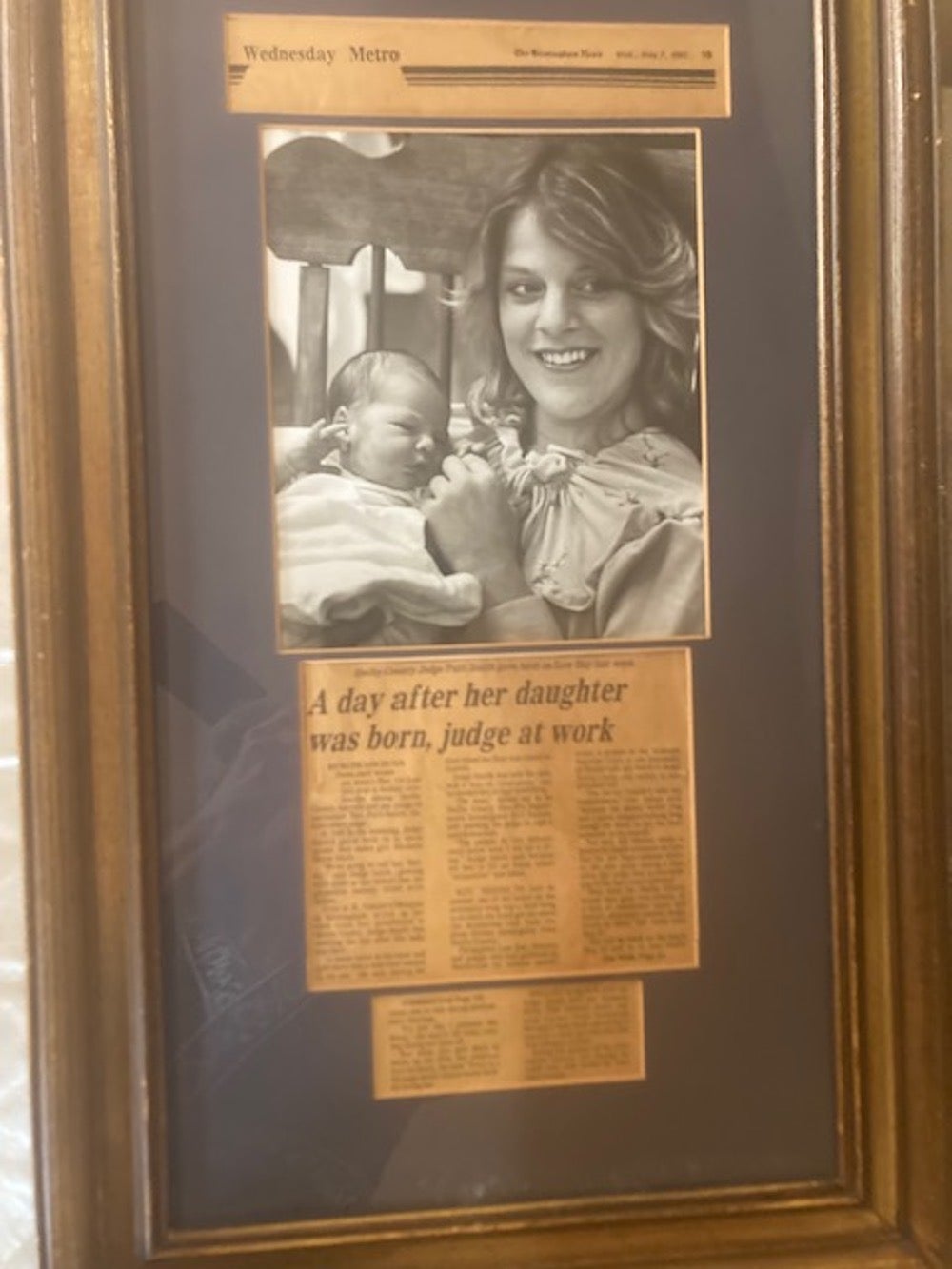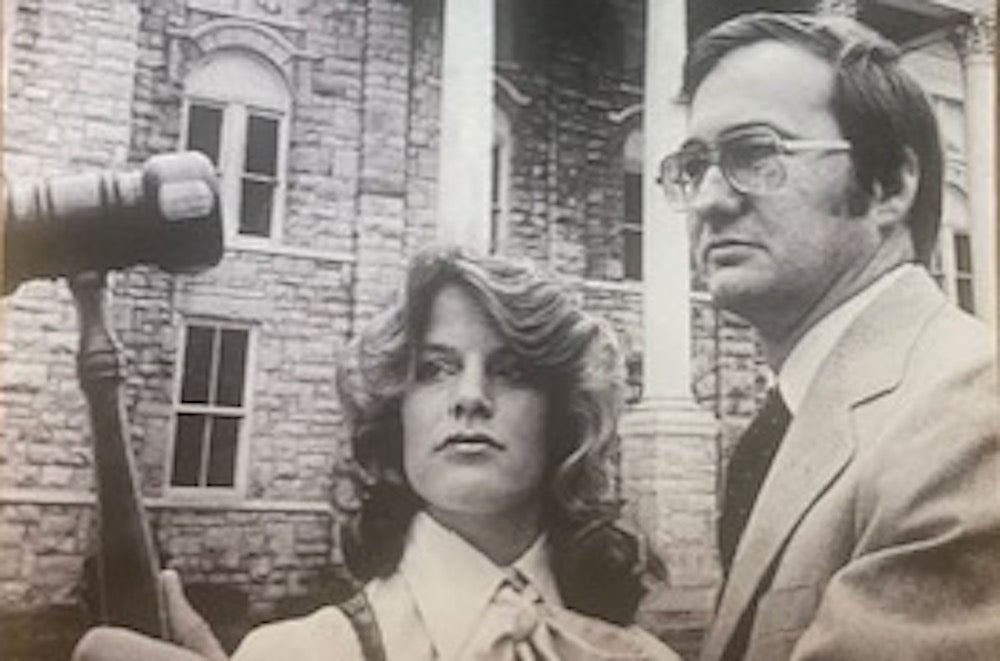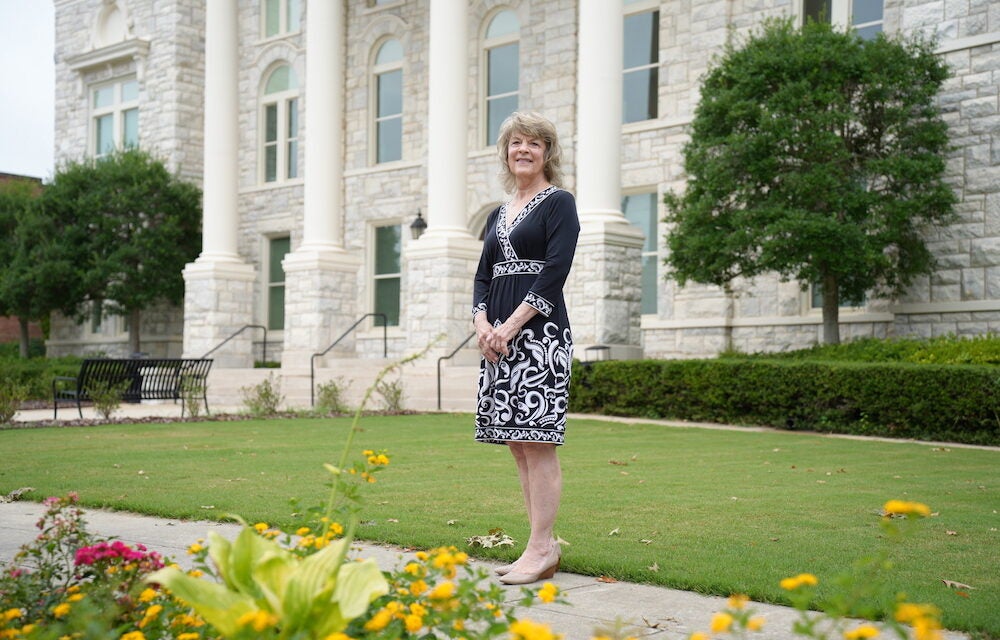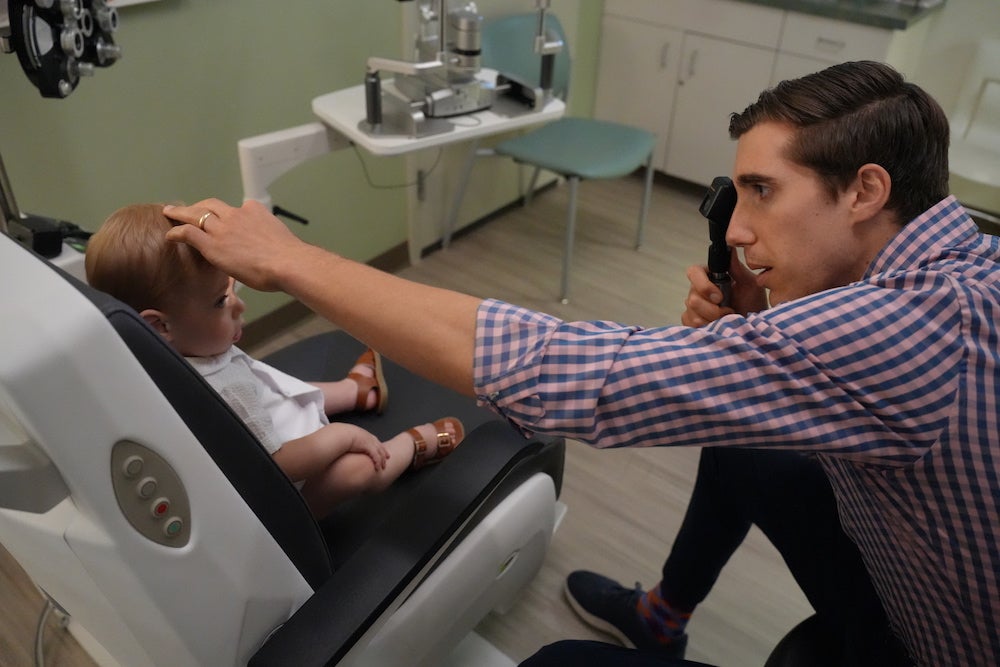By Anna Grace Moore
Photos by Alec Etheredge & Contributed
Heavy is the hand that holds the gavel. Justice Patricia “Patti” Mungenast Smith bore that weight–that responsibility to uphold the law–as a badge of honor during her 31-year-long judicial career.
Born in 1952 to Andy and Norma Mungenast, Smith grew up as one of 14 children–the fifth oldest child and the second-oldest daughter in her family. Thanks to her father’s career in the U.S. Air Force, Smith grew up all over the world, including living in Germany and Canada.
It was not until her father, Col. Mungenast, completed his undergraduate and graduate degrees and was sent to the Air War College at Maxwell Air Force Base in Montgomery that her family settled in Montgomery. Col. Mungenast later on became the first-ever student to become a tenured professor. Being “the first” seems to run in Smith’s family.
“Few people in life are blessed to have their career also be their [anointing],” she says. “I believe it’s God’s calling on my life to be in my career.”
Having graduated from Montgomery Catholic High School, Smith went on to attend Troy University, where she earned her bachelor’s degree in social services in 1973. She worked in the university’s cafeteria, residence halls and as the school’s yearbook’s editor to put herself through school, graduating in three years, debt-free.
When she was 19 during her freshman year, Smith worked at Sears in the catalog department. Her now husband of 49 years, Jerry Smith, and his friend saw her from afar and flipped a coin as to who would get to ask her out.
The two began dating in college and married shortly after Smith graduated and enrolled at The Jones Law School at Faulkner University. Three months after they got married, Jerry got a job in Birmingham, but Smith stayed behind in Montgomery to finish her J.D., eventually graduating from law school in 1976.
Not long after did Smith move to Birmingham to be with Jerry. Ironically, she could not find a job at first until Dick Bell hired her to practice law at his firm–Bell, Johnson and Medaris.
In January 1977, Smith was hired as Assistant District Attorney for the 18th Judicial Circuit. In 1980, Gov. Fob James appointed Smith as the District Court Judge Shelby County. On May 1, 1980, which is actually “Law Day,” Smith gave birth to her and Jerry’s first-born child.
“I’m up in St. Vincent’s, and a nurse says, ‘There’s a law enforcement officer here to see you,’” she says. “In comes [Shelby County Sheriff’s Department Investigator] Bill Davenport. I said, ‘Bill, what are you doing here?’ He laughed and said, ‘Hey, I need a search warrant. We couldn’t find the other judge, but we knew where you were!’ They have this great picture of me holding my daughter, and it says, ‘Judge at Work Day after Birth.’ That was pretty awesome.”

In November 1980, Smith ran and was elected officially to the position of district court judge.
She served in this role for 25 years, becoming re-elected in 1986, 1992 and 1998. One of the proudest moments in Smith’s career was when she was sworn in as a district court judge–the first time she was given the oath of office.
“As an attorney, you argue one side of the case,” Smith says. “When you’re a judge, you’re left with the final decision of what happens here. The magnitude of being put in that position can be overwhelming.”
Then presiding Circuit Court Judge Kenneth Ingram took Smith aside before swearing her in, telling her a story of a defining moment in his career. He sentenced a young man to prison for robbery for a significant amount of time.
Shortly afterwards, Ingram was in the grocery store and bumped into the young man’s father who said, “Thank you for treating my son with respect.”
“Kenneth told me, ‘You will be called on to make all kinds of decisions. It doesn’t matter what someone has done. They are a human being, and you never forget that. You treat them with respect,’” Smith says. “That has never left me. It was the best advice I could ever receive as a judge.”
Known for her heart for children, Smith worked to found the Developing Alabama Youth “DAY” Program in Alabaster in 1983. The DAY Program provides remediation plans for academics, study tools for the GED, behavioral help, anxiety management tools, employability services and more.
Since its inception, the DAY Program has helped hundreds of at-risk youth become successful on their “alternate educational routes,” enabling them to earn their diplomas or degrees and become employed in good jobs.
While Smith has presided over thousands of cases, it would be her judgements in the termination of parental rights cases that would affect her the most. During one case, a foster family could only adopt two of the three children in their care.
The young girl in question, who was no more than 12 years old at the time, took to the stand to testify, asking why she could not be with her siblings. Smith remembers trying hard to hold it together, but during recess, she went to the bathroom and wept in her robes, praying to God to help her make the best decision for that young girl.
“I remember thinking, ‘God, there’s no right answer to this,’” Smith says. “I allowed her to be removed, and her relative agreed to take her in. I prayed about those kinds of decisions. I had to.”
In 1996, Smith founded Friends of the Court, Inc./CASA of Shelby County with just a few volunteers and no stable funding. CASA, which stands for Court Appointed Special Advocates, is a 501(c)3 nonprofit organization that was first founded in 1977.
“I’ve always said, ‘The decisions that I make are only as good as the information that I’m provided,’” Smith says. “The whole idea with CASA is they’re lay people that are trained to work in family court. They are assigned by the judge to the case. They provide additional information. Sometimes, they supervise visitation. I’ve always called them, the ‘eyes and the ears of the court.’”

Working to ensure every child a safe, permanent home, CASA in Shelby County created an office and supervised visitation house–the Patricia M. Smith CASA House–pay tribute to Smith in December 2022.
Smith’s work in family court led her to campaign for a seat on the Alabama Supreme Court. In 2004, Smith was elected to the Alabama Supreme Court and served one term–six years–before officially retiring in 2011.
“I just felt like there was a need for somebody to be down there who had a totally different perspective about family court, having made it a 25-year career,” Smith says. “That was endorsed at one point when we were contemplating a case in the supreme court, and I had a very strong position about the outcome of a case that involved juveniles. One of the justices said to me, ‘Hearing your perspective after having done that, it helps us make the right decisions.’ I feel like that’s why I was called to do that.”
During her time on the Alabama Supreme Court, Smith became an original member of the Charter for the Protection of Children with the Catholic Diocese of Birmingham. At the time of her tenure, she had served 31 years on the bench.
Yet, Smith’s work advocating for children did not stop at the end of her judicial career. After retiring, she chaired two different boards with the Catholic Diocese of Birmingham–the Catholic Social Services Board and the Catholic Family Services Board, continuously striving to improve the quality of life for children and their families in Alabama and beyond.
Smith also volunteers with the Birmingham Catholic Center of Concern and works with sisters of different religious orders from around the world who care for the less fortunate in Birmingham.
“I think God puts people in and out of your lives that enrich you,” Smith says. “They give wonderful guidance. They will tell the truth to you. I am a culmination of a lot of people’s efforts. I think it’s important to give back.”
Reflecting on her decades-long career, Smith says the best part of her job was working to provide a better life for who she calls God’s greatest blessing–children, especially those in need. Thanks to her, thousands of children got to grow up in loving homes, knowing they are wanted, cherished and above all, created in God’s image.
There is no greater anointing than one’s call to disciple others, and in Smith’s case, to love all children with open arms.










